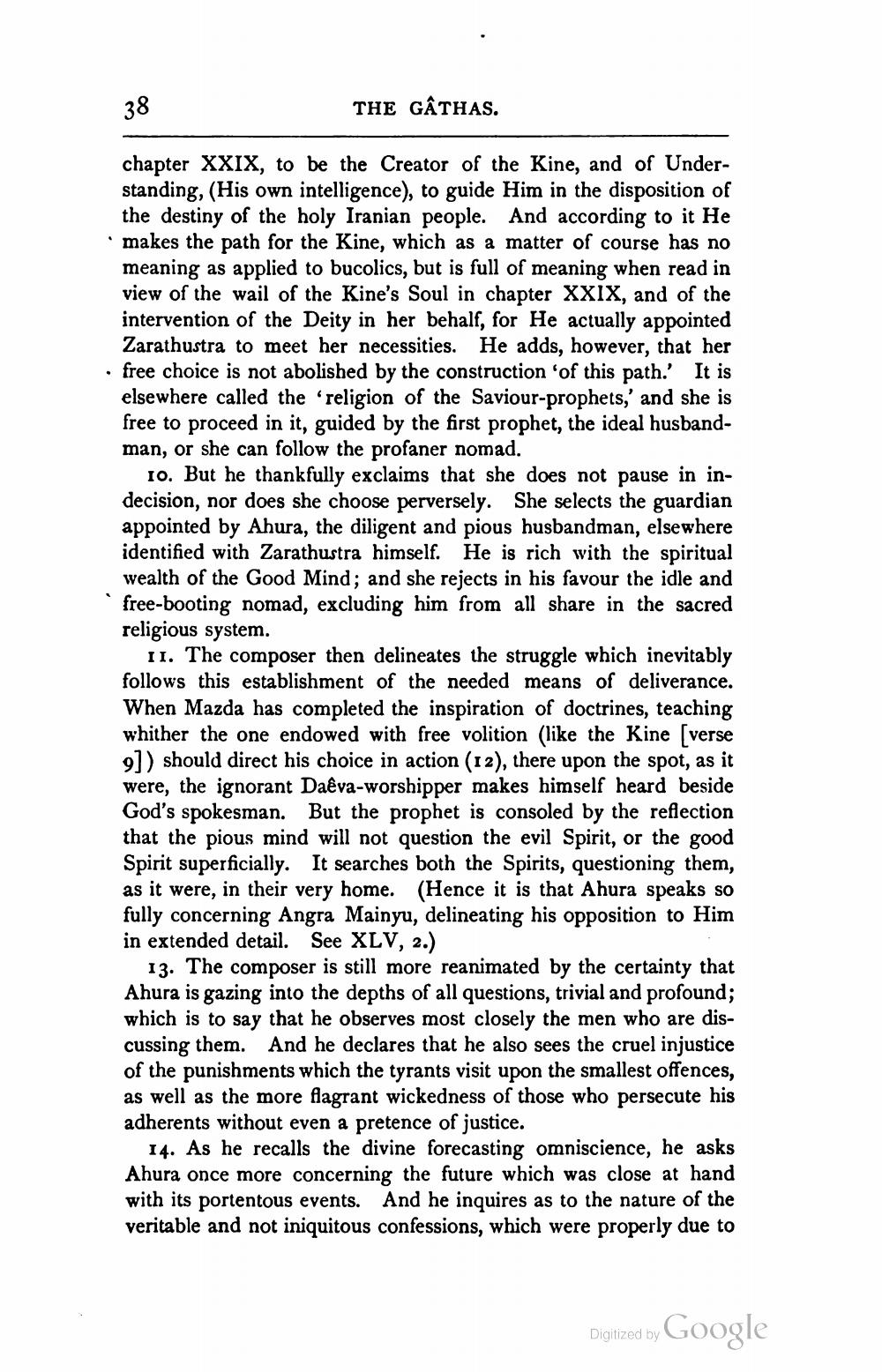________________
38
THE GÂTHAS.
chapter XXIX, to be the Creator of the Kine, and of Understanding, (His own intelligence), to guide Him in the disposition of the destiny of the holy Iranian people. And according to it He makes the path for the Kine, which as a matter of course has no meaning as applied to bucolics, but is full of meaning when read in view of the wail of the Kine's Soul in chapter XXIX, and of the intervention of the Deity in her behalf, for He actually appointed Zarathustra to meet her necessities. He adds, however, that her free choice is not abolished by the construction 'of this path. It is elsewhere called the religion of the Saviour-prophets,' and she is free to proceed in it, guided by the first prophet, the ideal husbandman, or she can follow the profaner nomad.
10. But he thankfully exclaims that she does not pause in indecision, nor does she choose perversely. She selects the guardian appointed by Ahura, the diligent and pious husbandman, elsewhere identified with Zarathustra himself. He is rich with the spiritual wealth of the Good Mind; and she rejects in his favour the idle and free-booting nomad, excluding him from all share in the sacred religious system.
11. The composer then delineates the struggle which inevitably follows this establishment of the needed means of deliverance. When Mazda has completed the inspiration of doctrines, teaching whither the one endowed with free volition like the Kine (verse 9]) should direct his choice in action (12), there upon the spot, as it were, the ignorant Daêva-worshipper makes himself heard beside God's spokesman. But the prophet is consoled by the reflection that the pious mind will not question the evil Spirit, or the good Spirit superficially. It searches both the Spirits, questioning them, as it were, in their very home. (Hence it is that Ahura speaks so fully concerning Angra Mainyu, delineating his opposition to Him in extended detail. See XLV, 2.)
13. The composer is still more reanimated by the certainty that Ahura is gazing into the depths of all questions, trivial and profound; which is to say that he observes most closely the men who are discussing them. And he declares that he also sees the cruel injustice of the punishments which the tyrants visit upon the smallest offences, as well as the more flagrant wickedness of those who persecute his adherents without even a pretence of justice.
14. As he recalls the divine forecasting omniscience, he asks Ahura once more concerning the future which was close at hand with its portentous events. And he inquires as to the nature of the veritable and not iniquitous confessions, which were properly due to
Digitized by Google
Digitized by




